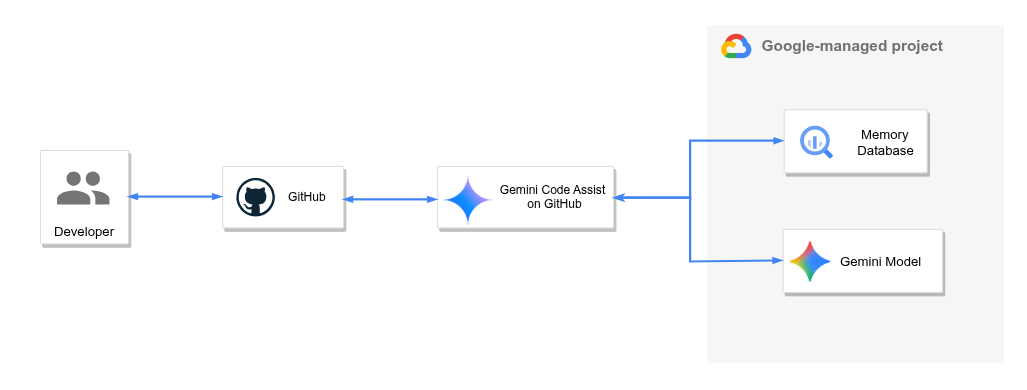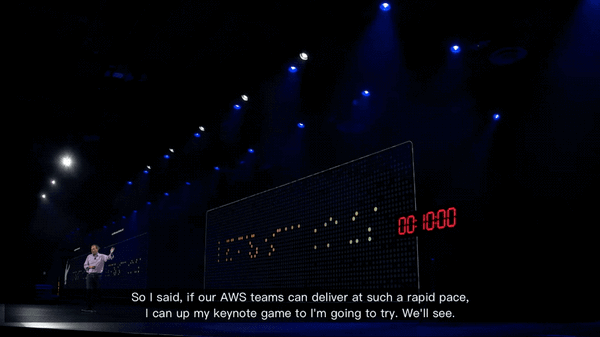# Gemini Code Assist: Persistent Memory for Smarter AI Code Reviews
The most effective code review feedback is **specific**, **consistent**, and grounded in the **history of the project**.
However, traditional AI code review agents are **stateless** — they have no memory of prior interactions.
This often leads to the **same rejected suggestions reappearing** in future pull requests, creating frustration and wasted effort.
We’re solving that with a **new memory capability** for [Gemini Code Assist](https://codeassist.google/) on GitHub — available to both **enterprise** and **individual developers**.
---
## Why Memory Matters
This **persistent memory** feature enables Gemini Code Assist to build an evolving, dynamic record of your team’s:
- **Coding standards**
- **Style**
- **Best practices**
learned directly from pull request interactions and stored securely in a **Google-managed project** — fully isolated for your installation.
---
## How It Works
Memory transforms Gemini Code Assist from a stateless tool into a **long-term, adaptive project contributor**.
### Automated vs. Manual Rules
- **Static style rules**
Existing support for `styleguide.md` files provides universal guidelines that are included in every agent prompt.
- **Persistent memory rules**
The new dynamic layer **automatically learns** rules from pull request interactions with **zero manual input**.
- Stored efficiently
- Applied **only when contextually relevant** to current code under review
- Scales and evolves alongside your workflow
---
## The Three Pillars of Persistent Memory
1. **Learn from interactions**
Pull request feedback and discussions are analyzed to capture important patterns.
2. **Store efficiently**
Only essential rules are preserved to keep memory clean and actionable.
3. **Apply contextually**
Rules surface only when relevant, preventing irrelevant suggestions.
---
## Step-by-Step: How Gemini Code Assist Learns
### 1. Learns From Your Reviews
When you review code and merge a pull request, Gemini Code Assist analyzes discussion threads.
Example:
If a recurring suggestion ("import statements should not be line-wrapped in `.java`") is **rejected**, Gemini stores this as feedback **after the PR is merged** — ensuring the code and discussion are complete.
### 2. Creates & Updates Rules
The Gemini model infers reusable natural-language rules:
> "In Java, import statements may be line-wrapped."
These rules are generalised for broader application.
### 3. Applies Rules to Future Reviews

**Two key applications:**
- **Guiding initial review**
Before analyzing a new PR, the agent retrieves relevant rules to align feedback with established team patterns.
- **Filtering suggestions**
Draft comments are checked against learned rules to drop or adjust feedback that violates prior guidance.
Over time, this spreads your collective knowledge across the codebase through every review.
---
## Beyond Code Reviews — Cross-Platform Intelligence
Tools combining **AI** and **long-term context** are gaining importance across fields.
Platforms like [AiToEarn官网](https://aitoearn.ai/) apply similar principles to content creation:
- AI-generated content
- Publishing & monetization across Douyin, Kwai, WeChat, Bilibili, Rednote (Xiaohongshu), Facebook, Instagram, LinkedIn, Threads, YouTube, Pinterest, and X (Twitter).
- Continuous refinement based on audience feedback via [AiToEarn博客](https://blog.aitoearn.ai) and [AI模型排名](https://rank.aitoearn.ai)
Persistent memory in Gemini ensures **code reviews stay relevant**, much like AiToEarn enables ongoing content adaptation.
---
## Getting Started
### New Users
- **Individual/Open-source maintainers**
Install via [GitHub Marketplace](https://github.com/marketplace/gemini-code-assist).
- **Enterprise customers**
Onboard via [Google Cloud Console](https://console.cloud.google.com/gemini-code-assist/agents-tools) and review:
- [Setup guide](https://developers.google.com/gemini-code-assist/docs/set-up-code-assist-github)
- [Code Review docs](https://developers.google.com/gemini-code-assist/docs/review-github-code)
- [Video walkthrough](https://www.youtube.com/watch?v=GILoNZWTpQ0)
### Existing Users
- **Individual/Open-source maintainers**
Enable in the [GitHub admin panel](http://codeassist.google/code-review).
- **Enterprise customers**
Enable via [Google Cloud Console](https://console.cloud.google.com/gemini-code-assist/agents-tools).
---
## Final Thoughts
Persistent memory in Gemini Code Assist improves **code quality**, reduces **repetition**, and helps align reviews with **team standards**.
For creators, similar AI-powered platforms like [AiToEarn官网](https://aitoearn.ai/) offer open-source tools for generating, distributing, and monetizing content — connecting analytics and model rankings for sustainable growth across multiple networks.
---




